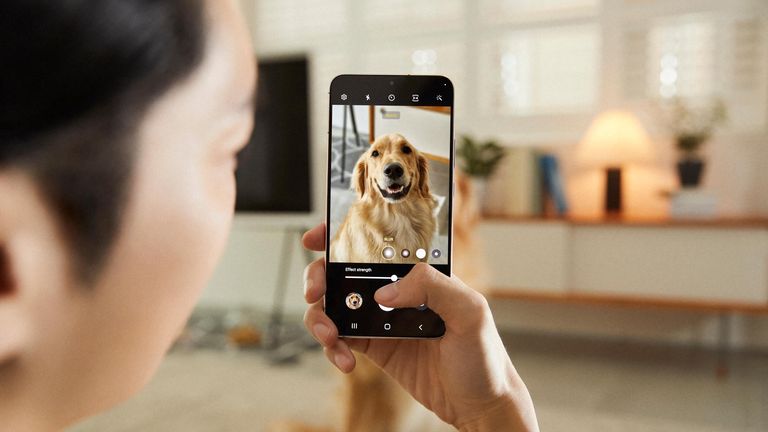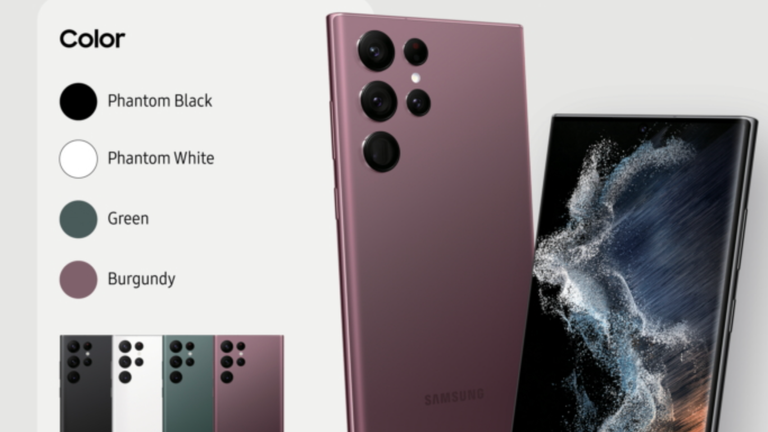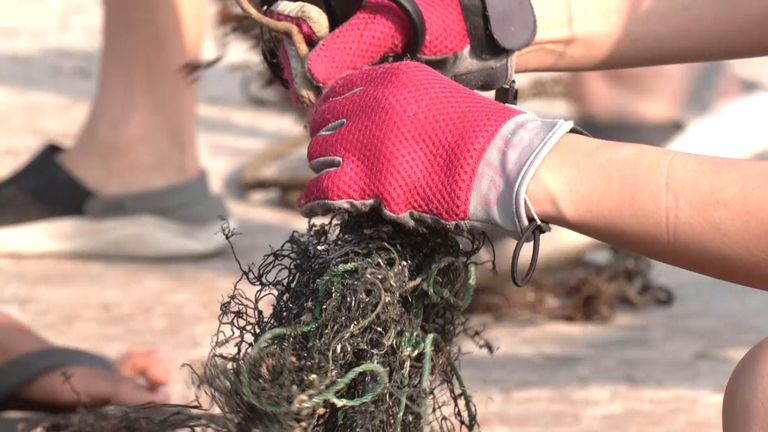Samsung has announced its latest flagship mobile devices, one of them combining two of its previous premium models into a phablet partly made from the plastic in discarded fishing nets.
The Galaxy S and Note ranges have been merged into the S22 Ultra, a phablet that comes with a stylus and a 6.8-inch screen – and Samsung has dramatically improved the S Pen response time from nine milliseconds to 2.8 milliseconds.
Announced at the company’s annual Unpacked event, the new device will retail from at least £1,149 in its basic memory configuration, putting it firmly in the ultra-premium slice of the market for mobile devices.
Also launched in the S22 range were the regular S22 phone (£769) and the S22+ (£949) which have a 6.1-inch and 6.6-inch screen respectively.
Both of these devices have three rear cameras, a 50MP wide camera, 12MP ultra-wide, and 10MP telephoto lens, and a 40MP front camera.
‘We have pushed the boundaries’
Speaking to Sky News, Conor Pierce, corporate Vice President of Samsung UK and Ireland, said: “Anything over €1,000 – which equated to around a third of the value of the market in the UK – we have a 66% market share. So we basically have created this market segment.”
Mr Pierce said of the S22 Ultra, which has two additional rear cameras, a 108MP wide camera and another 10MP telephoto one that comes with 10x optical zoom: “I think we’ve really pushed the boundaries on this one.”
It’s also designed with Samsung’s largest ever pixel sensor, which Mr Pierce said alongside accessing the “expert raw application… allows people to have a DSLR-like experience”.
Ben Wood, the chief analyst at CCS Insight, said it made sense for the flagship Galaxy S and Note devices to converge.
‘A cracking product’
“If the long-term plan is to discontinue the Note family, it means the most premium Galaxy S device will now always have an integrated stylus. For customers who don’t see the utility in having S-Pen capability, the natural device of choice will be the S22+ which looks like a cracking product.”
“The S22+ might actually the ‘star of the show’ this year. There is a big step up in specifications and design and it uses premium materials such as metal and glass giving it flagship qualities,” added Mr Wood.
He added it was encouraging to see Samsung talking openly about its sustainability efforts, but noted the use of recycled materials was tentative as they came with risks such as being “prone to cracking, decolourisation, and other defects”.
Samsung has developed a new material from “ocean-bound plastics” which it uses inside the volume and power key brackets, and expects to prevent more than 50 tons of fishing nets from entering the ocean as a result.
The company said it also plans to remove all plastics from its mobile packaging within three years.



